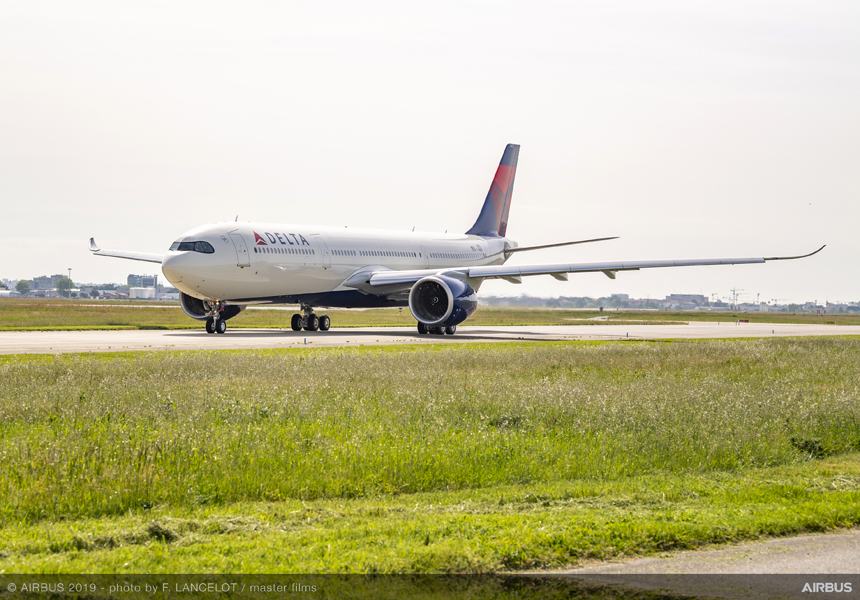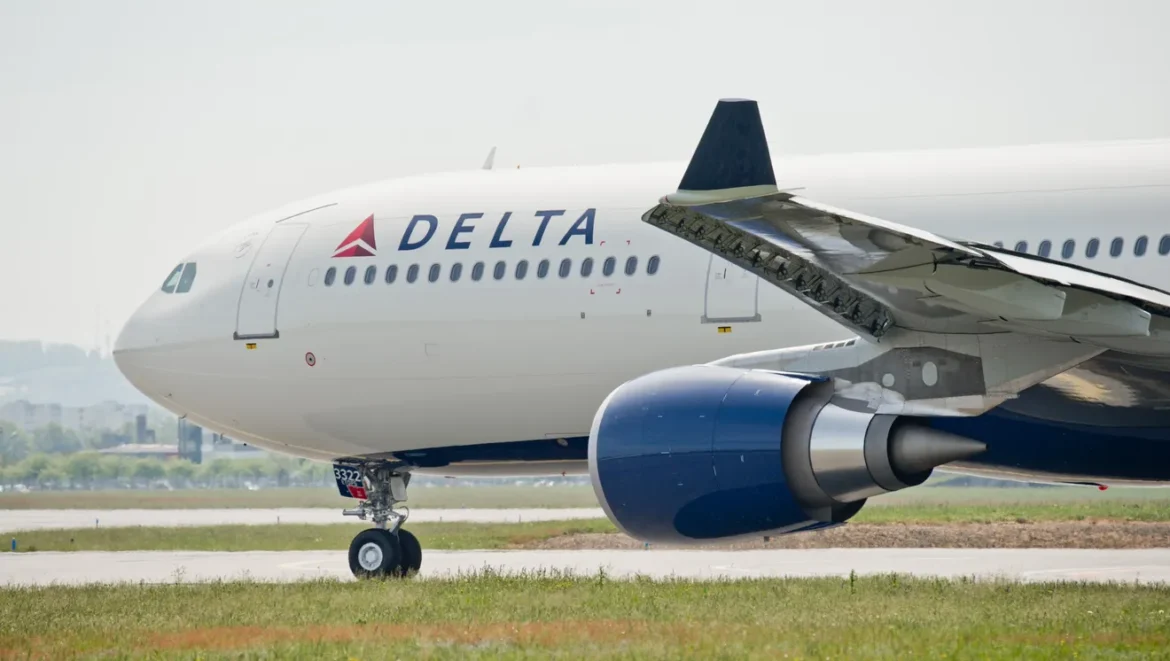Advertiser & Editorial Disclosure: The Bulkhead Seat earns an affiliate commission for anyone approved through the links below. This compensation may impact how and where links appear on this site. We work to provide the best publicly available offers to our readers. We frequently update them, but this site does not include all available offers. Opinions, reviews, analyses & recommendations are the author’s alone, and have not been reviewed, endorsed, or approved by any of these entities.
Delta Air Lines flight DL59 from London Heathrow Airport (LHR) to Boston Logan International Airport (LHR) was forced to make an emergency return this morning after fumes were reportedly detected in the cockpit shortly after takeoff. The Airbus A330-900neo, carrying 259 passengers, had departed around 10:00 AM local time and was climbing over the coast of Cornwall when the crew made the call to turn around.
The aircraft was only minutes into its transatlantic journey when pilots reported a potential air quality issue in the cockpit. Upon arrival, the Airbus A330 was met by fire and rescue vehicles. Passengers were taken by bus to the terminal as crews inspected the plane. According to reports, the incident involved fumes entering the cockpit. This type of “fume event” typically prompts pilots to use oxygen masks and divert immediately. Despite carrying enough fuel for a transatlantic flight, the pilots chose to land overweight rather than take the time to dump it first.

The incident occurred amid Delta’s ongoing internal program to address air contamination risks in its fleet. Last month, The Wall Street Journal reported that the airline had begun replacing hundreds of Auxiliary Power Units (APUs). These small engines provide power to aircraft on the ground. The effort, launched in 2022, aims to reduce the likelihood of “contaminated air events,” in which engine oils or chemicals can enter the cabin’s air supply. Although Sunday’s event involved a larger Airbus A330, similar concerns about cabin air systems have been raised across various aircraft models. While airlines maintain that most fume events result only in temporary symptoms such as headaches or irritation, advocates have called for stricter monitoring after several reported cases of more serious, long-term health effects among flight crews and passengers.
Delta released the following statement:
Delta flight 59 from LHR to BOS on October 5 landed safely after returning to LHR due to reports of smoke in the aircraft. The flight will operate tomorrow, and Delta’s customer team is assisting customers with accommodations and rebooking. We apologize to our customers for the delay, but safety for our customers and crew will always be Delta’s top priority.”
Anthony’s Take: Delta and airport authorities are investigating the incident and the aircraft remains grounded pending inspection. No serious injuries were reported and the airline is rebooking affected passengers on alternative flights. This fume issue is odd and even stranger that it seems like Delta is the only one seeing these incidents while other Airbus operators are not.
(H/T: Paddle Your Own Kanoo.)
(Image Credits: Delta Air Lines.)
User Generated Content Disclosure: The Bulkhead Seat encourages constructive discussions, comments, and questions. Responses are not provided by or commissioned by any bank advertisers. These responses have not been reviewed, approved, or endorsed by the bank advertiser. It is not the responsibility of the bank advertiser to respond to comments.
Advertiser & Editorial Disclosure: The Bulkhead Seat earns an affiliate commission for anyone approved through the links above This compensation may impact how and where links appear on this site. We work to provide the best publicly available offers to our readers. We frequently update them, but this site does not include all available offers. Opinions, reviews, analyses & recommendations are the author’s alone, and have not been reviewed, endorsed, or approved by any of these entities.
